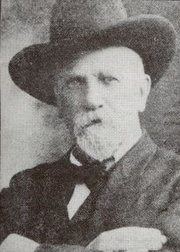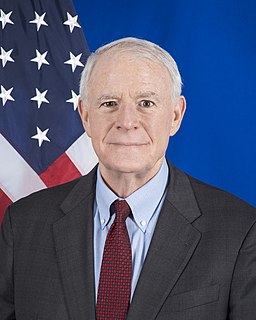A Quote by Joseph Joubert
Genuine witticisms surprise those who say them as much as those who listen to them; they arise in us in spite of us, or, at least, without our participation,--like everything inspired.
Related Quotes
Emotionally, a person can become so negatively driven that they don't respect the privilege of being on this Earth without their mother and their father. They may say it doesn't bother them, but there is something in us about those who are a biological part of us and don't care. People in that situation stop hearing the other voices that love them, hold them, trust them and tells them how great they are. They're focused on that one person who isn't answering them.
God has lent us the earth for our life; it is a great entail. It belongs as much to those who are to come after us, and whose names are already written in the book of creation, as to us; and we have no right, by anything that we do or neglect, to involve them in unnecessary penalties, or deprive them of benefits which it was in our power to bequeath.
The one enemy in the world that America has is England. But then, England is the great land of Christian civilization, and it may not be a thing to be much wondered at that our Americans whom we send to represent us in London become in a short time somewhat civilized, and learn to love those who hate them, bless those that curse them, and do good to those that persecute and calumniate them.
I say we have not even had the decency to maintain the assets that our parents and grandparents built for us - our roads, our bridges, our wastewater systems, our sewer systems; by the way, those weren't Bolsheviks, those weren't socialists that built those things for us - much less build the infrastructure we need for the 21st century.
...Those laws are within the grasp of the human mind. God wanted us to recognize them by creating us after his own image so that we could share in his own thoughts... and if piety allow us to say so, our understanding is in this respect of the same kind as the divine, at least as far as we are able to grasp something of it in our mortal life.
As we live our human lives, let us be like the water. Let us be conscious of the flow. Let us not forget the great ground of being that draws us on through life. Let us live in a knowing hope, aware that all being is in transition, that all movement is back to the source. Let us treat those around us as reminders of our illusionary individuality. We know that they are us and we are them connected in ways we cannot fathom. Let us grow in compassion for all beings, for they share our journey.
One cannot be honest even at the end of one's life, for no one is wholly alone. We are bound to those we love, or to those who love us, and to those who need us to be brave, or content, or even happy enough to allow them not to worry about us. So we must refrain from giving pain, as our last gift to our fellows.
When these resources are degraded or polluted, then there are fewer of them for the rest of us, and then we start competing for them and eventually as we compete, there are those of us, who have the capacity, who have the ability to be the controllers, to decide who accesses them, how much they access, and eventually there is a conflict. Those who feel marginalized, those who feel excluded, eventually react in an effort to get their own justice, and we have conflict.




































